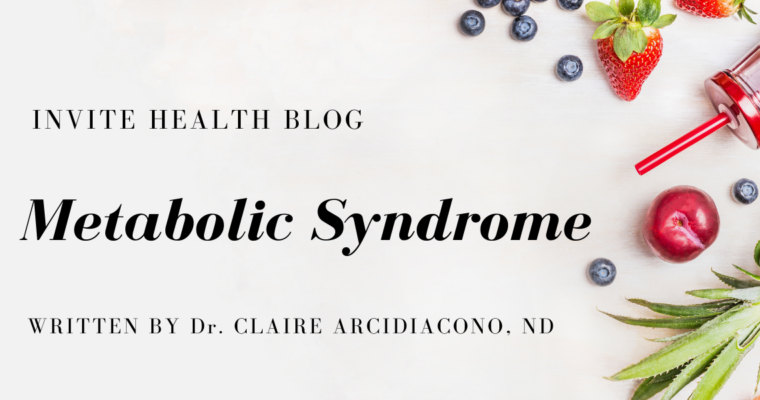InViteⓇ Health Podcast Intro: Welcome to the InVite HealthⓇ podcast, where our degreed health care professionals are excited to offer you the most important health and wellness information you need to make informed choices about your health. You can learn more about the products discussed in each of these episodes and all that InViteⓇ Health has to offer, at www.invitehealth.com/podcast. First time customers can use promo code podcast at checkout for an additional 15% off your first purchase. Let’s get started.†
**Intro Music**
Jerry Hickey, Ph: [00:00:40] There is a not well known risk factor that’s very bad for your heart. It’s called a ceramide. It’s a type of fat that our body makes, and it turns out to be a major player in how dangerous your cholesterol is to your heart. So are doctors testing for ceramides? If they are high, what does that mean? Is it truly dangerous? What is it connected with? How do you lower your ceramides? All this and more in my episode, ceramides, these fats make cholesterol very dangerous. Hi, my name is Jerry Hickey. I’m a nutritional pharmacist. Welcome to the episode. You can find all of our episodes for InVite Health, by the way, for free, wherever you listen to podcasts or just go to Invitehealth.com/podcast. You can also find Invite on Facebook, Twitter and Instagram at InVite Health. Now, if you could subscribe and leave a review, it’s also helpful for us. So let’s get going. This is a very important episode, by the way, because we’ve known about ceramides for an awful long time and we’ve known if they have potential to be very dangerous for a very long time. But it’s not getting tested for, you know, paradigm shift in thinking and beliefs in, in health and medicine change very slowly. So this is something you should seek out, I think. I think you should seek out testing on ceramides, because as far back as the 1970s, perhaps even before researchers found that high levels of the fats, there are types of fats we make in our blood known as ceramides, pushes cholesterol into the blood vessel walls of our heart. Now, that’s coronary heart disease. That’s really dangerous. † [00:02:31]
[00:02:32] So what are they? What are ceramides? And there’s different types by the way. There are fatty, waxy things that we make, just like our body makes fats called triglycerides and different forms of cholesterol. Now there are different forms of ceramides. Some are more dangerous than others. They do have applications, practical applications, such as they have benefits for our skin. They hold our cells together. But when they are elevated in our blood, they are not just dangerous, I believe, extremely dangerous. But we don’t know how quickly that occurs. Or they dangerous right away or does it take a little time for them to become dangerous? They haven’t done that kind of research yet. So they may be the substance that leads to diabetes and very overweight people or lead to clogged arteries in anyone. And there’s other issues beside that. So if ceramides build up, what do they do? First, they are related to everything bad when they’re high. When they’re elevated, there’s normal levels of ceramides. But when they’re elevated, they’re related to just about everything bad, coronary artery disease, which is the biggest killer on the planet, kills almost 20 million people each year. Massive, dangerous heart attacks, strokes, blood clots, alzheimer’s disease and in older people, specifically, a poorer ability to fight cancer. But that’s, there’s a paradox there and we’ll talk about that later. And the onset of diabetes in very chubby people very, excuse me for using that word, let’s say very flabby, overweight people, is related to ceramides. Now, towards the end of this, I might have to split this into two episodes. I don’t know yet. I will list probable causes of increased ceramides. I won’t list all of them because we don’t know all of them and how to lower ceramides. And it’s not as hard as you think. There is no drug so far to treat ceramides, to lower ceramides. It’s lifestyle factors. It’s like a healthy lifestyle. There are certain supplements that can help. † [00:04:53]
INS AND OUTS OF CHOLESTEROL – INVITE HEALTH PODCAST, EPISODE 488>>LISTEN NOW!
[00:04:54] Now, I did mention cancer and that’s where there the paradox is. In older people. Let me explain this. I’ll take a minute. In older people, and everybody, our T cells become equated with what the cancer is, and attack it, and in fact in the more advanced forms of treating cancer where they actually take your T cells out of your body, and they train them to look at the mutations in your cancer. Every cancer has mutations because that’s what causes cancer in the first place. So there’s mutations within the cancer. So they train your T cells to recognize the mutations in the cancer because these mutations are not present in healthy cells. † [00:05:37]
[00:05:38] It turns out when ceramides are elevated in the blood of elderly people and sadly and unfortunately, ceramides naturally increase in the blood of elderly people, it’s one of the things we have to push back against. They kill the energy producing parts of the T cells, the mitochondria and the T cell becomes fatigued easily and it can’t do its job of fighting the cancer. But here’s the paradox, doctors, researchers are also finding ways to utilize ceramides to fight cancer. So that’s uh, that clearly is a paradox. Now, but we’re not focusing on cancer and ceramides on this particular podcast episode. But I will tell you something interesting. The supplement called Resveratrol, it usually comes from Polygonum cuspidatum, which is Japanese Knotweed. Never plant Japanese Knotweed in your yard. It is incredibly invasive. It’ll kill everything else. Don’t plant Japanese knotweed, but in the farms, when a plant, Japanese Knotweed, it’s almost impossible to kill it. It has a lot of resveratrol, that’s probably one reason why it’s hard to kill resveratrol protection plant, just like it protects humans. But they found that resveratrol actually pushes ceramides into the cancerous tumor and destroys the cancerous tumor. Now, I did a dogleg here. I wasn’t really going to talk about that, but I just think it’s an interesting part of the whole discussion here. Interestingly, a lot of the conditions that ceramides are attach to, resveratrol has an ability to help treat or even prevent diabetes, Alzheimer’s disease, heart disease, even heart attacks and strokes to a degree. So that’s interesting. I mean, it is a lot of what resveratrol does related to its ability to control ceramide levels. That’s part of the discussion. That’ll be an upcoming episode, I believe. † [00:07:40]
[00:07:41] So let’s get to diabetes. And I mentioned that ceramides are involved with diabetes and people who are pretty overweight, who are not exercising, they’re just eating wrong. Monash University is in Australia and they publish a lot of noteworthy research. I’m constantly reading at least three or four times a year. I’m reading a study from Monash University and February 2000, 2013, they published an article in the journal Diabetes and here’s what it says,” Increased blood fats like triglycerides and cholesterol and inflammation in obese individuals is strongly linked with insulin resistance”. So what’s insulin. We release insulin when we eat food and it clears the excess sugar out of our blood. So when there’s resistance to insulin, your sugar is going up in your blood and when the sugar goes too high, well, that’s diabetes. So, of course, as insulin works less and less effectively, to pack the sugar into our muscles and our liver and our fat cells, we will drift into diabetes mellitus.† [00:08:53]
[00:08:54] Now, LDL cholesterol is considered the bad cholesterol. So there’s HDL, which is considered good. And this is not a straightforward, characterization of these fats. HDL is not always good. But when it’s in the correct chemical structure, it’s very good. LDL, when you have too much, it’s bad. But there are worse forms of LDL, we’ll get into that in a couple of minutes. There are worse forms of LDL. So LDL, low density lipoprotein, low density, it’s not heavy and it’s not heavy because it lacks protein. So it has a lot more fat and cholesterol in it. If it’s high, it’s easy for that to go rancid, when it gets rancid, it’s in front of your blood vessel walls and it starts that whole cycle of events that leads to hardening of the arteries, atherosclerosis. So LDL carry ceramide. So the bad cholesterol carries ceramides around your body and people who are obese, there’s a lot of ceramide in their LDL. So in obese patients there’s an excess of ceramide carried in their LDL cholesterol, if they already have a mild blood sugar problem, which they usually do. The researchers at Monash University in Australia found that if they treated cells with the ceramide laden in the LDL, so if they took the LDL cholesterol from these patients with ceramide in it, it further reduced the effectiveness of insulin and their cellular studies. So they took it a step further. Now they are doing a mouse study, they took healthy mice, these mice were lean and fit. And these, these, they’re not track stars, but they’re healthy mice. They infused them with LDL cholesterol that was laden with ceramide and they started to develop diabetes mellitus and a different study of patients with hepatitis C at University Hospital, Regensburg in Germany. I’m told that that’s a really cool medieval city over there. The patients who had hepatitis C with diabetes had very elevated ceramide, that’s in the International Journal of Science. Now, that is not proof positive that the ceramide caused diabetes, but there’s a lot more that does point to that. So this is the Journal Metabolites. It’s November 2021 and the researchers note that diabetics have the worst form of LDL cholesterol. So LDL is considered the bad cholesterol. HDL is considered good. HDL is good cholesterol because one thing it does, it sucks the fats out of the artery walls in your heart if it’s in the right chemical structure. And a second thing, it’s a powerful anti-inflammatory. So HDL, high density lipoprotein. So it’s high density, it’s heavy. It’s got a lot of protein, not a lot of fat. It’s a vacuum cleaner,sucks the cholesterol out of your blood vessel walls while reducing inflammation. That’s really good because that helps prevent heart disease.† [00:12:08]
[00:12:09] LDL, low density, less protein, it’s less heavy, but the worst is the small, dense LDL. It’s small. So if there’s any like fissure in the nook or cranny in your blood vessel walls, it’s easier to insert itself into it and cause problems. And it’s dense so it floats out of the blood easier, gravity pulls out of blood towards your heart. Blood vessels issue. So the researchers note that diabetics have the worst form of the LDL, which is the small, dense LDL. Worse yet, their cholesterol is generally enriched with greasy triglycerides. Now triglycerides are normally used for energy. So if you’re a of a lumberjack, you can eat like a lumberjack, because you’re going to burn up the triglycerides for energy. But if you’re not a lumberjack and you eat like a lumberjack, that’s bad because your triglycerides go up, your cholesterol goes up, your triglycerides goes up, and your belly fat goes up. So triglycerides are a known cause of heart disease and stroke. But they also, besides so the LDL of diabetics is loaded with triglycerides, and it’s small and it’s dense, but unfortunately, it’s also packed with ceramides. And this favors a big increase in the risk of suffering with a massive heart attack or stroke in diabetics.† [00:13:38]
[00:13:39] So let’s get to the heart disease, because this is obviously, more common than diabetes. You can have heart disease without having diabetes, but generally if you have diabetes, you’re at risk of heart disease. Clogged arteries in the heart, are the number one killer on planet Earth. Nearly, you know, less than 20 million people each year die directly because of clogged arteries in the heart. It’s called coronary heart disease. But many more die of related causes, like arrhythmias or abdominal aortic aneurysm, delaminate, that burst. Now, the arteries of the heart are not as big as other arteries. Arteries are the biggest blood vessels, they carry oxygen, rich blood away from the heart to the rest of the body. So when the heart pumps out blood to the body,it’s going through the arteries and then it breaks down into smaller and smaller blood vessels to get to your your muscles and your brain and your eyes and everything else. So the arteries in your heart are smaller. They’re more like a sippy straw, so it’s easier to clog them. That’s why heart disease is so common where other blood vessels, even though they might be a little clogged, you’re doing fine with them.† [00:14:54]
[00:14:55] Now, angiography is a technique where a dye is injected into a person and then the doctors scan their blood vessels and their heart via X-rays to see if there’s any blockages. And then, of course, they can take the appropriate actions. Maybe they have to insert stents to open up the blood vessels. Or maybe it’s just a matter of changing the diet depends on what’s going on, how bad the clogging is, and if there is clogging at all. When I had my pharmacies, hickey chemists, I had people come in who had five or six stents in their heart. It’s like they had to open up like the entire series of arteries in the heart. So this is a cohort of 1580 adults. They’re undergoing elective coronary angiography. So that means it wasn’t an emergency. Like all of a sudden they got chest pain and they were fainting. Elective means they decided, hey, this is a good idea, this is a good idea to get my heart checked. And they were found that elevated ceramides were strongly connected to heart related deaths. As they keep track of these people over the years, people who had, cause when they went in for the angiography, they, they checked their ceramide levels and they found over the years, those with the elevated ceremides, were much more likely to die from a heart attack or a stroke or something related like that. Now, that’s one group. That’s one group in this study, there’s three groups in the study, a second group, it’s 160 patients with coronary artery disease. So we know they have clogged arteries and a third group of 1637 patients with acute coronary syndrome. So they’re really at risk of a stroke or heart attack. They’re like a timebomb, all three groups were followed after the angiographies for three years, and all three groups, elevated ceramides were significantly associated with cardiovascular mortality. Significantly means there’s really strong evidence, okay. So this was independent of other risk factors for dying from heart disease or having a stroke or heart attack. So even if their cholesterol was under control, if they weren’t inflamed, simply having elevated ceramides was dangerous. In other words, it’s something that we really need to get checked.† [00:17:13]
[00:17:14] The doctors found that the ceramides, and let me tell you something, this is a whole bunch of academic research institutions involved with this. It’s published in the European Heart Journal in July 2016. That’s the University of Zurich, the University of Toronto, at the University of Heidelberg in Germany and the medical university of Graz, a whole bunch of these places, high quality research. They found that if the ceramides, caused up to a 450% increased risk of dying from heart disease. And this was separate from the cholesterol level, the level of HDL, good cholesterol, the level of LDL, bad cholesterol, level of triglycerides. It didn’t matter, if the ceramides were elevated, it was a risk. So why? Why would it be a risk? The University of Helsinki, January 2002. It’s the Journal Trends and Cardiovascular Medicine. So we’ve known about this since like the 1970s. So like I said before, a paradigm shift very slowly in medicine. It depends on where the drug companies are investing money for research. Like we know they invest a lot of money in statin drugs to lower cholesterol. They’re not investing money and drugs to lower ceramides. So that’s the flavor of the decades, lowering cholesterol. Right. But it’s not the only thing. So obviously, we’ve known about this situation for a long time and it’s not getting tackled at all. † [00:18:43]
THE CIRCULATING NEWS ON OUR CIRCULATION HEALTH PROGRAM>>READ NOW!
[00:18:44] So here’s here’s what they found. University of Helsinki. Atherosclerosis, by the way, is the condition where your arteries become narrowed and hardened. And this is because of buildup of fats in the lining of the blood vessels that’s known as plaque. It’s the lining of the blood vessels, the arteries are getting clogged up with plaque. Now, this is mostly due to LDL aggregation. Aggregation means that it clumps together, it builds up. On inspection of plaques from patients with atherosclerosis, hardening of the arteries. The LDL cholesterol is loaded with ceramides, because the ceramides, tend to self aggregate. They clump together and they build up. So the amount of ceramide and the plaque correlated with the severity of the hardening of the arteries, So the more ceramides, the worse the heart disease. Now the Mayo Clinic tests for Ceramides. So maybe it’s worth my while getting on a plane and going to Rochester, Minnesota. But you know what? I’m in New York and once in a while I’m also in Florida. So I want to check around there, who checks for ceramides. So let’s go visit some of the writings from the Mayo Clinic. This is the Department of Cardiology within the Mayo Clinic in Rochester, Minnesota. And it’s in a very serious journal, the Journal of Arteriosclerosis, Thrombosis and Vascular Biology. Vascular meaning,Circulatory system thrombosis, meaning blood clots, arteriosclerosis, clogging in the blood vessels. This is in the Journal Biology in August 2018. So, you know, we’ve known about this for a while. Plasma ceramides were measured in 495 people sent for non-urgent coronary angiography at the Mayo Clinic. So these people, it’s not like they thought, you know, they didn’t know that if they had a problem or not, they wanted to get checked out. The doctors didn’t follow these patients for four years. And here’s what they found over the four year period after the angiography, elevated ceramides were strongly connected with the need for having bypass surgery, putting stents in the blood vessels to keep them open,so they wouldn’t have heart attacks. It was strongly connected with heart attacks with strokes and dying, mortality from heart disease. Now, this is regardless of the person’s smoking habits. This is regardless of the level of the different cholesterol, of the level of blood sugar. If they were overweight or obese, it was a totally separate risk for these conditions.† [00:21:34]
[00:21:35] Elevated ceramides on their own, if elevated in the patients, strongly increased likelihood of suffering a stroke, a heart attack, needing heart bypass surgery or dying, even if the patient exercise any cholesterol was carefully controlled, elevated ceramides were extremely dangerous. I’m going to have to split this up. I’m going to have to split this up. I’m going to have to do a part two of this. We’ll talk about more of the findings and writings from the Mayo Clinic, with ceramides in the next part of this episode. We’ll discuss what what raises ceramides as far as we know so far, while briefly mention what conditions elevated ceramides are connected with and what lower ceramides. And it’s a lot easier than you can imagine. So thanks for listening to this episode. You can find all of our episodes for free wherever you listen to podcasts or go to invitehealth.com/podcast. And subscribe and you know, do all that. Leave a review if you could. You can also find Invite on Facebook, Twitter and Instagram at InVite Health. I want to thank you for listening. Hope to see you next time, on part two of this episode, Jerry Hickey signing off. Have a great day.† [00:23:14]











